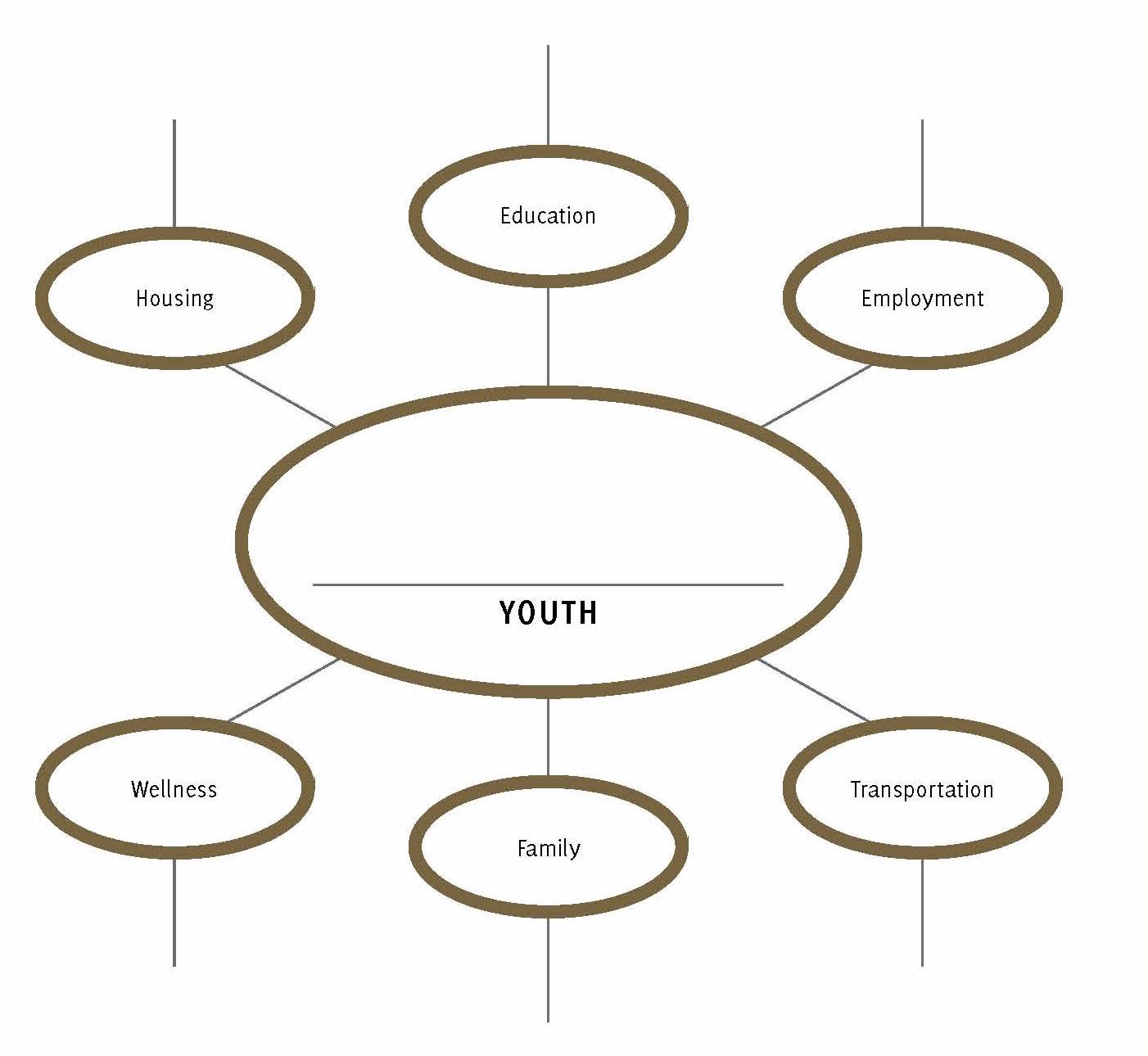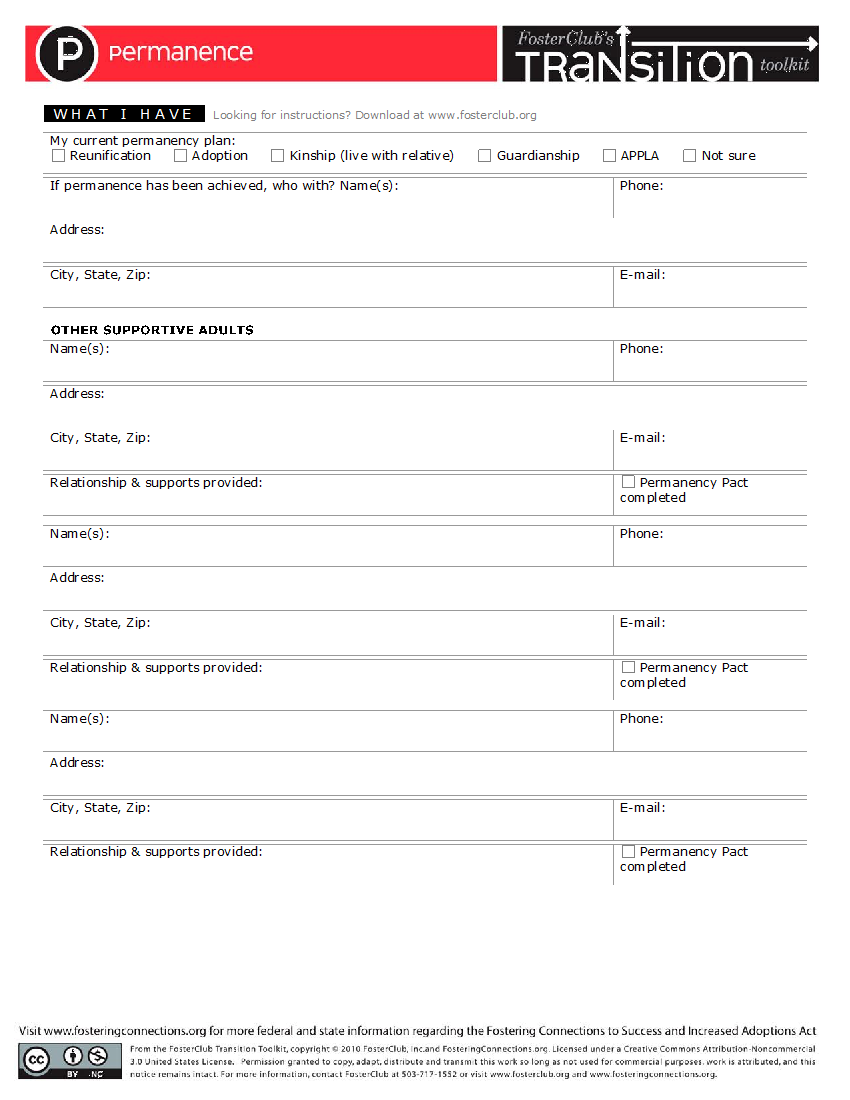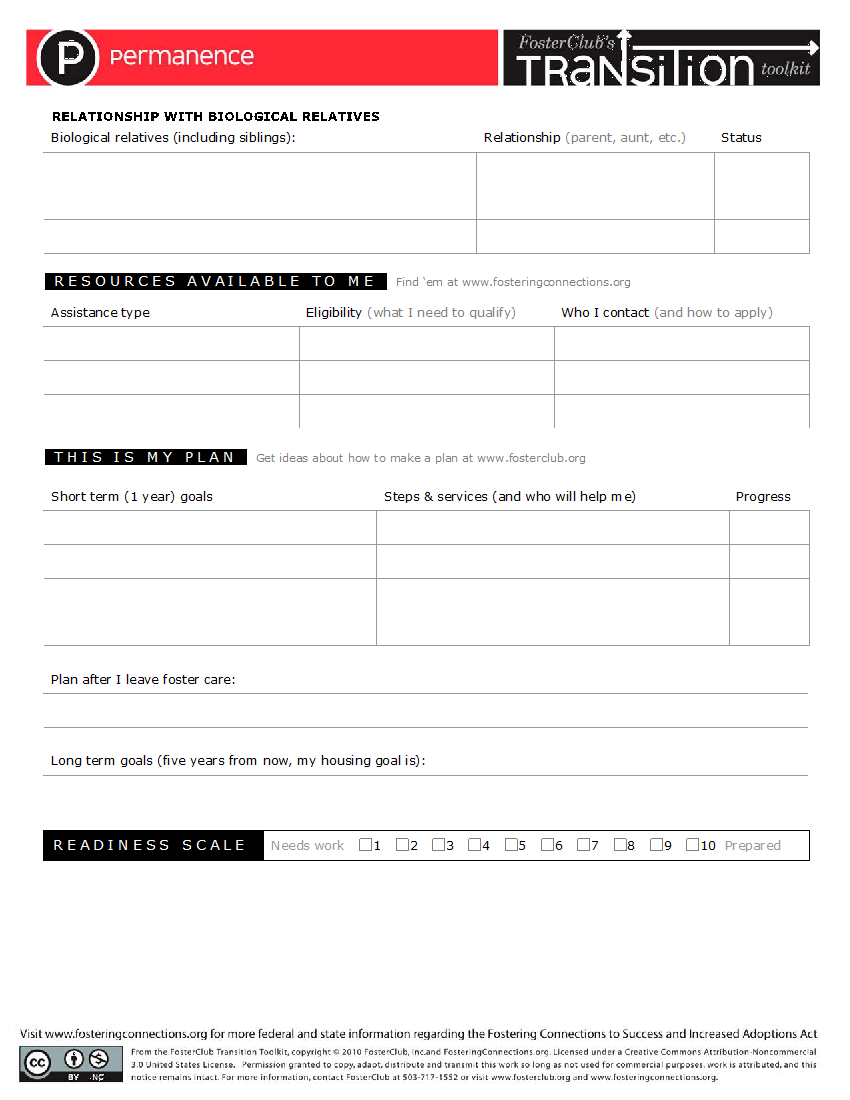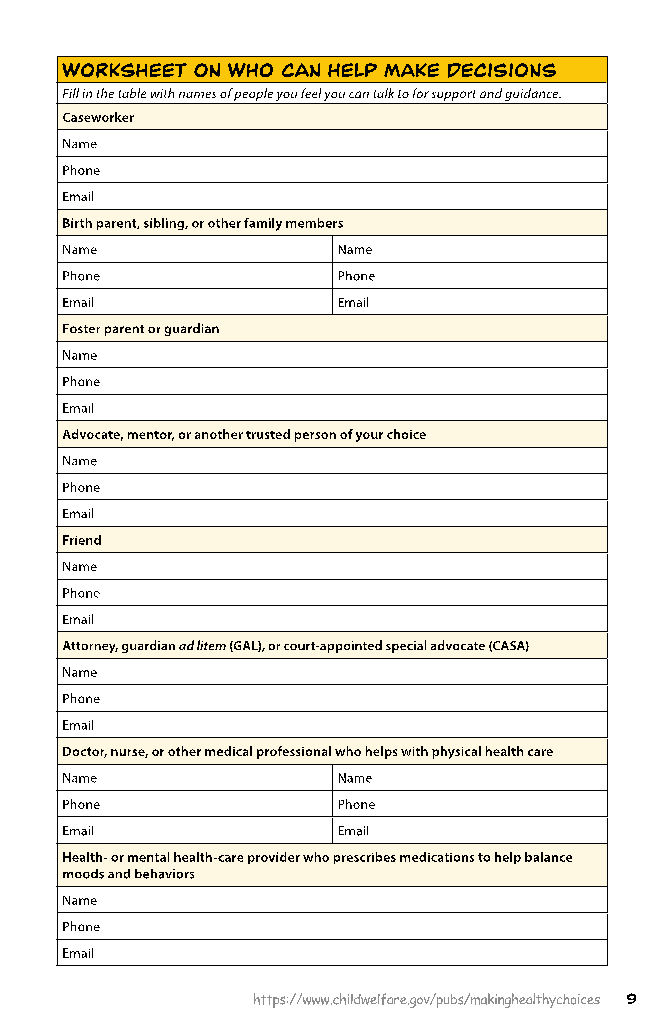

Bettering Your Relationships
Improving Romantic Relationships
Communicating Respect
Expanding Your Social Circle
Connecting with Trusted Adults
Connecting with Trusted Adults
Think about the people who have supported you at different
times in your life. Who have been your allies at your most critical moments?
The people who become our lifelong friends and family are the people who have
been there when we needed someone and who have shown us respect when we were
our most vulnerable. These people are worth seeking out, reaching out to in
good times and in bad, and keeping in your life.
Your Web of Relationships
The first step to a social network of caring adults is to identify
the people who have been there for you, or who are there for you now.

You can use this web of relationships to keep track of the relationships and important connections in your life. Identify people you feel a connection to who you might be able to call on to help you in these different areas of your life. Write their names and phone numbers in the appropriate spot. As you build more connections, add them in a different color so you can see the changes over time.
From California Child Welfare Co-Investment Partnership: 360 Whole Youth Whole Life: California’s Breakthrough Series Collaborative on Independent Living Programs: Appendix 7: V.O.I.C.E.S. Youth Relationship Web
My Resources, Relationships, and Supports
You might want to consider working on an Eco-Map of your resources, relationships and supports with your social worker, therapist, or another trusted adult. This exercise is a part of the Healthy Transitions Curriculum published by the Foundation for California Community Colleges.
Building Relationships with Adult Allies
Connecting with Adults
From TeensHealth.org
Wondering how to develop healthy relationships with adults? Here a few articles and resources from TeensHealth.org that might help you think through what’s on your mind.
Developing a Permanency Pact
From FosterClub.com
A Permanency Pact is a pledge by a supportive adult to provide specific supports to a young person in foster care with a goal of establishing a lifelong, kin-like relationship. A Permanency Pact provides:
- a defined and verbalized commitment by both parties to a long term supportive relationship
- a defined and verbalized commitment by both parties to a long term supportive relationship
- clarity regarding the expectations of the relationship
This is a free tool designed to encourage life-long, kin-like connections between a young person from foster care and a supportive adult. Download a free PDF of the Permanency Pact Workbook.
Permanence Plan - Foster Youth Transition Planning Tool
Use this tool, from the Foster Club Transition Toolkit, to maintain a list of the supportive adults in your life and record your progress toward your permanency plan.


Asking for Help: Getting Past Obstacles
Excerpted from Asking for Help: Getting Past Obstacles @TeensHealth.org
When we're struggling with something, it's natural to turn to others for help. Getting help sounds simple. But it's not always easy to do. Sometimes we stand in our own way without realizing it. Here are some examples.
Obstacle 1: Believing That Needing Help Is a Sign of Weakness
Asking for help shows maturity and confidence. It's a sign of strength, not weakness. You know what you need and you're not afraid to reach out for it.
Obstacle 2: Thinking You Don't Deserve Help or Support
Everyone needs help now and then. No one can — or should — handle everything alone. Accepting help can strengthen friendships and relationships.
Obstacle 3: Not Speaking Up to Ask for Help
"I'm having trouble with this. Can you help me?"
Obstacle 4: Waiting for Someone Else to Make the First Move
Don't wait for someone to read your mind or notice what you need. Ask.
Obstacle 5: Giving Up Too Easily
If help doesn't get us what we expect right away, it's tempting to give up. But getting help takes ongoing effort. It might take multiple attempts.
Read more…
Who Can Help Me Make Decisions?
Adapted from Making Healthy Choices: A Guide on Psychotropic Medications for Youth in Foster Care, U.S. Department of Health and Human Services, Children’s Bureau (2012), pp. 8-9.
You’re not alone in making life decisions. As a foster youth, there are people in your life who can provide you with input and guidance. These people may be your:
- Caseworker
- Birth parents, sibling, or other family members (if they are involved in your medical care)
- Foster parent or guardian
- Advocate, mentor, or another trusted person of your choice
- Friends
- Attorney
- Court-Appointed Special Advocate (CASA) or guardian ad litem—people assigned by a judge to look out for your best interests while in foster care
- Doctor, nurse, or other medical provider who helps with physical health care
- Health- or mental health-care provider who prescribes medications to help balance moods and behaviors
Team Directory - Who Can Help Me Make Decisions?
Print and fill out this directory of who is on your planning team and can help you with making decisions.
